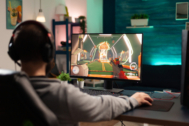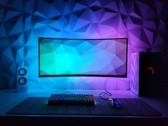Gaming can be an incredibly fun and engaging hobby. However, anything in excess can be detrimental. It’s important for gamers to maintain a healthy balance between gaming and other aspects of life. Finding this equilibrium isn’t always easy, but it’s essential for preserving physical health, mental wellbeing, and social connections.
This article will explore various self-care strategies that can help gamers continue enjoying their favorite hobby without sacrificing their overall health. We’ll look at ways to minimize eye strain and neck/back pain from long sessions hunched over a computer or console. We’ll also discuss practices for ensuring adequate sleep, nutrition, and physical activity. Beyond just physical health, we’ll cover maintaining mental wellness by setting limits on gaming time. And finally, we’ll talk about balancing gaming with in-person social interaction and other hobbies.
With some thoughtful effort, it’s possible to sustain an enjoyable gaming lifestyle that doesn’t come at the expense of health. This article aims to provide actionable tips that gamers can start implementing today. The goal is to help readers strike that perfect balance where gaming stays fun rather than becoming detrimental. And truth be said, if you want to keep on gaming for many years and still be able to carry your future grandchildren in a team deathmatch, you will need to pace yourself!
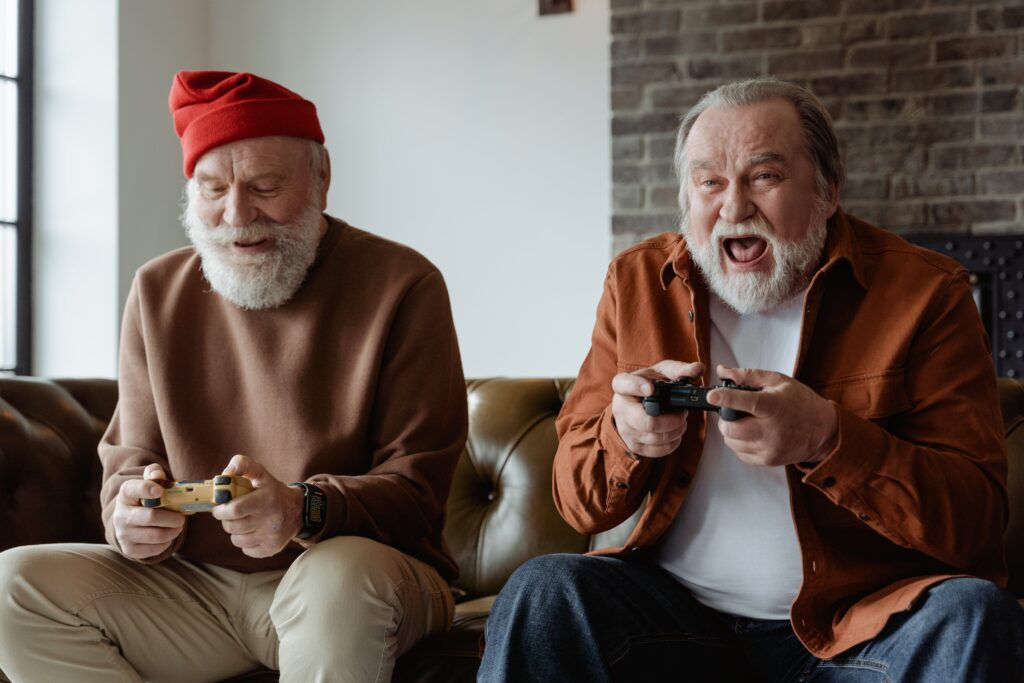
Physical Health
Sitting for long periods hunched over a computer while gaming can take a toll on your body. Poor posture, eye strain, and lack of movement can lead to pain, discomfort, and long-term health issues if not addressed. Here are some tips for maintaining physical health while gaming:
Posture Tips
- Sit up straight with your back against the chair. Avoid slouching or leaning forward.
- Keep your shoulders back and relaxed. Periodically roll them back to release tension.
- Adjust your monitor so your eyes are level with the top 1/3 of the screen. This prevents straining your neck to look down.
- Use a supportive chair with adjustable height. Your knees should be at a 90-120 degree angle.
- Place feet flat on the floor. If they dangle, use a footrest for support and comfort.
- Take regular breaks every 45-60 minutes to stand, stretch, and move around. This improves blood flow.
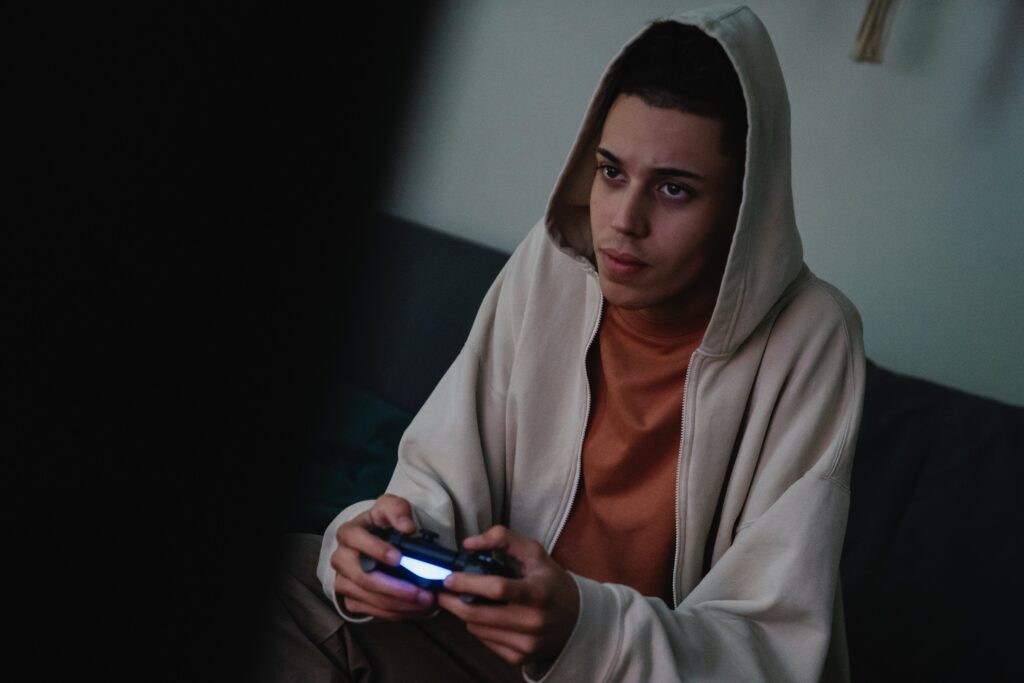
Eye Strain Prevention
- Reduce glare by using an anti-glare filter on your monitor.
- Keep room lighting dim, not dark. Darkness strains eyes.
- Blink frequently to moisten eyes and prevent dryness.
- Adjust text size and brightness settings for comfort.
- Take vision breaks by periodically looking away into the distance.
Level Up! Pick the best Gaming Monitor for You.
Stretches and Exercises
- Neck rotations – Slowly roll neck in circles 10 times each way.
- Arm circles – Raise arms out to sides and make 10 small circles forward and back.
- Wrist and finger stretches – Gently bend wrists back, hold for 5 seconds. Stretch fingers wide.
- Shoulder rolls – Lift shoulders up and roll back in a circular motion. Repeat 5-10 times.
- Torso twists – Sit tall and twist upper body side to side. Hold each side for 5 seconds.
- Calf and hamstring stretches – Stand facing wall, place hands on wall, step one leg back, and bend front leg slightly holding for 30 seconds per side.
Taking brief breaks to stand, move, and stretch can make a big difference in preventing discomfort, pain, and long term health issues from prolonged sitting while gaming.
Epic Seating: Office vs. Gaming Throne Challenge
Mental Health
Gaming should be an enjoyable hobby, not an obsessive addiction. It’s important for gamers to be self-aware and monitor their gaming habits to avoid burnout or losing a healthy balance.
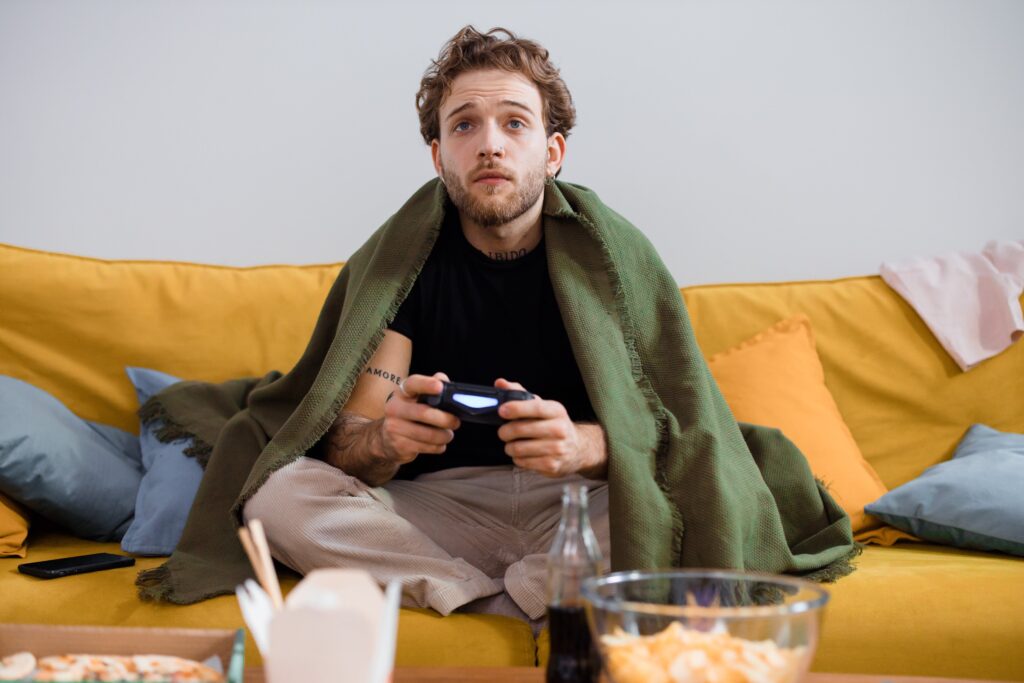
Setting limits on gaming time can prevent it from taking over your life. Try setting a timer or alarm to remind yourself when to take a break. It’s also helpful to schedule gaming in advance rather than playing aimlessly for hours on end.
Taking regular breaks for a mental reset is vital. Step away from the computer every hour or two to stretch your legs, eat a snack, chat with someone, or do another non-gaming activity. Breaks give your mind a chance to recharge. Most pro gamers do this.
Obsessive gaming can be a sign of underlying issues like anxiety, depression or loneliness. Pay attention to your thoughts and emotions while gaming. If you notice signs of addiction or that gaming has replaced real-world relationships and responsibilities, it may be time to seek help from a counselor or support group. The key is moderation. With some self-awareness and balanced habits, gaming can be an enjoyable part of life.
Social Health
Gaming can be a very solitary activity, and while playing with others online can be social, it’s important to maintain in-person connections as well. Make sure to schedule regular non-gaming activities with friends and family. Go out to dinner, see a movie, attend a concert or sporting event, or get together for game night or drinks. These shared experiences strengthen your relationships.

While online gaming can provide a sense of community, it shouldn’t completely replace real world interactions. Be present with your loved ones, listen closely, share stories, and bond over common interests beyond gaming. Try not to let gaming absorb all your free time and distract you from the people right in front of you.
Stay connected to your support network by planning video calls to catch up if you can’t meet in person. Keep relationships healthy by showing interest in what your friends and family enjoy too. Gaming can be social, but shouldn’t isolate you from human contact. Find balance between gaming and spending quality time with real people.
Game On, Family Strong: Embracing Video Games as One
Creating a Routine
Establishing a consistent daily routine can help gamers maintain a healthy balance. This includes sticking to a regular sleep schedule, scheduling in non-gaming activities, and allotting specific times for gaming.
Consistent Sleep Schedule
Getting adequate, quality sleep is essential for both physical and mental health. Gamers should commit to a regular sleep schedule that allows for 7-9 hours of sleep per night. This means setting a bedtime and wake up time that allows for sufficient rest. It’s also important to develop good sleep habits like avoiding screens before bed and establishing a calming pre-bed routine.
Building in Non-Gaming Activities
It’s important for gamers to take time away from gaming to pursue other hobbies and interests. Scheduling activities like exercising, spending time outdoors, reading, and socializing can help achieve better balance. Gamers should block off time for these activities in their daily or weekly routine. Making commitments to fitness classes, sports teams, book clubs or regular meetups holds one accountable.
Scheduling Gaming Time
While it’s easy to binge game for hours on end, gamers should allot specific gaming time slots in their routine. This could be a few hours after work or school, or during a set weekend time block. Setting timers can help avoid losing track of time while gaming. Scheduling gaming sessions makes it more likely to stick to a healthy amount versus gaming extensively at the expense of other activities.
Outside Interests
It’s important for gamers to cultivate hobbies and interests beyond gaming. This helps broaden your experiences, connect with others, and maintain balance in life.

Consider exploring some of these ideas:
- Join a sports team or start exercising. Physical activities like joining a soccer league or taking regular walks can provide a refreshing break from gaming. Exercising improves mood and focus.
- Learn an instrument or new skill. Challenge yourself by learning guitar, painting, woodworking, or any skill outside your comfort zone. Setting goals unrelated to gaming keeps life interesting.
- Volunteer in your community. Find volunteer opportunities with local nonprofits to meet people and give back. Seek causes related to issues you care about.
- Pick up a new hobby. Photography, baking, gardening, reading, and puzzles make great hobbies to pursue alongside gaming. Expand your passions.
- Spend time outdoors. Go on hikes, have a picnic at the park, or just take regular walks around your neighborhood. Fresh air and sunshine provide mental benefits.
- Socialize offline. Make plans to see friends, join a book club, take a cooking class, or attend meetups to connect with people offline. Prioritize real relationships.
Exploring activities beyond gaming helps maintain a healthy balance and brings new meaning to life. Discover what fulfills you outside of gaming.
Designing Victory: The Blueprint for Your Ultimate Gaming Lair!
Signs of Imbalance
Gaming in moderation is fine, but it’s important to watch out for signs that gaming may be becoming unhealthy or obsessive. Here are some potential red flags:
- Preoccupation or obsession – Do you find yourself constantly thinking about gaming, even when you’re not playing? Are you neglecting other interests or hobbies in favor of gaming? This level of preoccupation may indicate gaming is becoming an unhealthy fixation.
- Neglecting responsibilities – Is gaming interfering with your ability to handle daily responsibilities like work, school, or chores? This could be a sign you need to cut back on gaming and prioritize other obligations.
- Declining academic or work performance – If grades or job performance are slipping because you’re playing games instead of studying or working, that’s a clear indication gaming is negatively impacting your life.
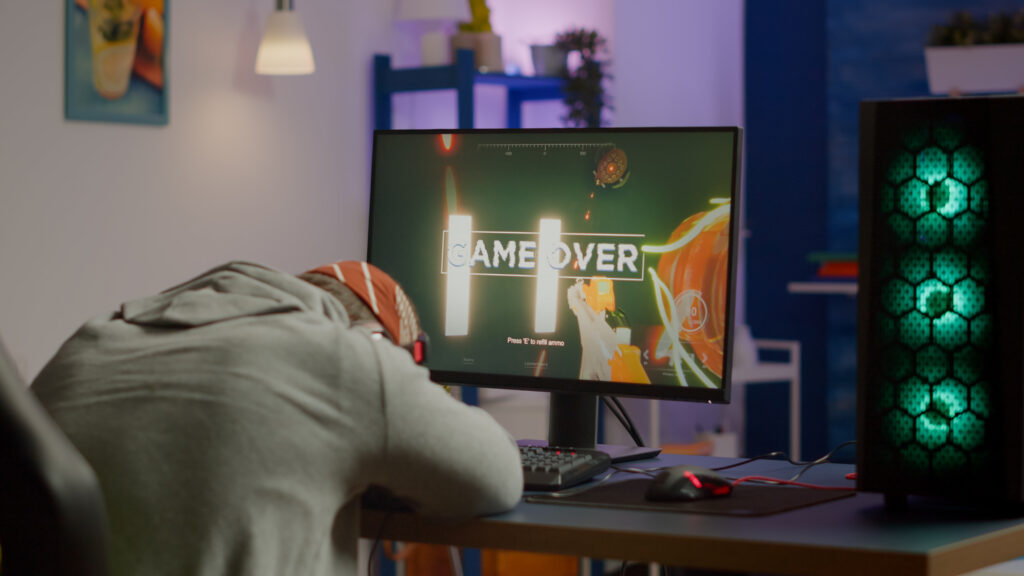
Paying attention to these warning signs can help you maintain a healthy balance between gaming and life. If you notice multiple signs of obsessive gaming, it may be time to cut back and focus more time on non-gaming activities. Seeking help from friends, family or professionals may be warranted if you are unable to make changes on your own. The key is moderation and balance.
Healthy Gaming Habits
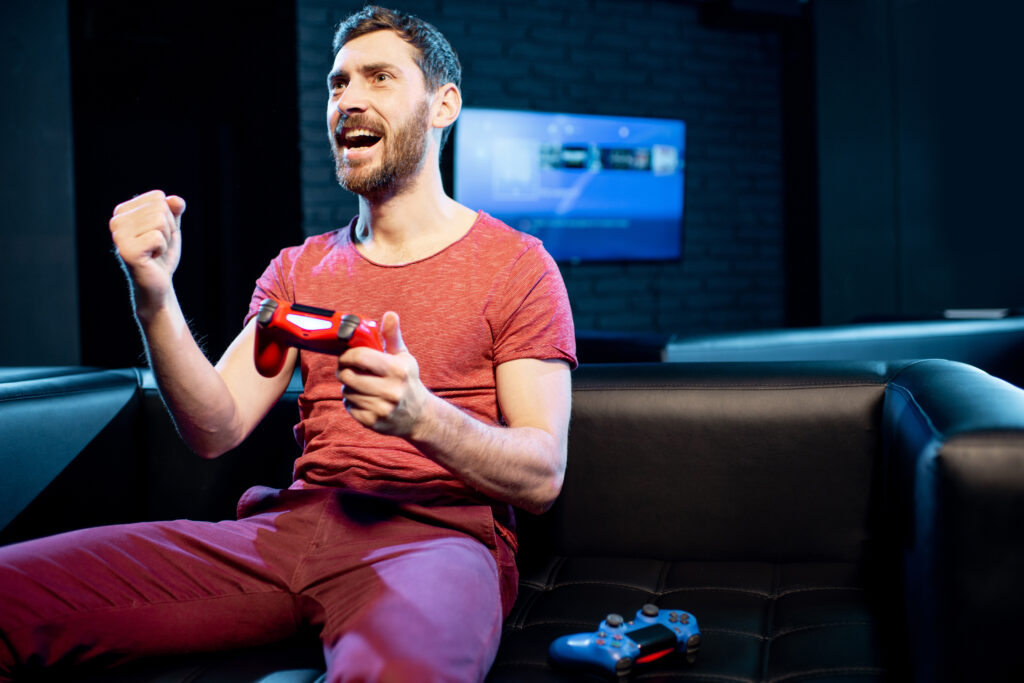
Gaming should be an enjoyable hobby, not an obsessive habit. Here are some tips for keeping your gaming fun but balanced:
- Set time limits – It’s easy to lose track of time while gaming. Set a timer or alarm to limit your play sessions to a reasonable duration. Take regular breaks.
- Schedule gaming sessions – Don’t just game whenever you feel like it. Designate certain times of day or certain days of the week for gaming. This creates structure and moderation.
- Take regular breaks – Get up frequently, stretch, walk around, rest your eyes. Gaming for hours on end isn’t good ergonomically or mentally.
- Avoid excessive competition – While a little friendly competition can be fun, don’t let rankings, trophies or bragging rights dominate your gaming. Focus on enjoying the experience. Think about it like this: “Would I be playing this game if it didn´t had a ranking system?” If so, then the game is not fun anymore, you are playing just to reach a higher number than your peers.
- Explore single player games – Multiplayer games can increase stress and anxiety. Single player adventures let you control the pace, taking time to appreciate the atmosphere.
Maintaining gaming as a positive force requires self-awareness and discipline. But a few simple habits can ensure your hobby stays healthy, balanced and sustainable.
Conclusion
In summary, gamers should be mindful of their posture, eye strain, and time spent playing to avoid physical health issues. Practicing self-care through meditation, socializing, and pursuing interests outside of gaming can benefit mental health. Striking a healthy balance between gaming, relationships, and responsibilities is key.
Are Triple A Video Games Becoming Too Expensive for Gamers?
Gaming in moderation as part of a routine that includes exercise, social interaction, and adequate sleep will allow gamers to enjoy their hobby while maintaining well-being. Remember to take breaks, stretch, rest your eyes, stay hydrated, and listen to your mind and body. If gaming becomes difficult to control or causes problems in your life, it may be time to reevaluate your habits or seek help.
With some mindfulness and moderation, you can game on while preserving your physical, mental, and social health. Stay alert to signs of imbalance and make time for other hobbies you’re passionate about. Your health and happiness should always come first. Game on safely and stay well!

